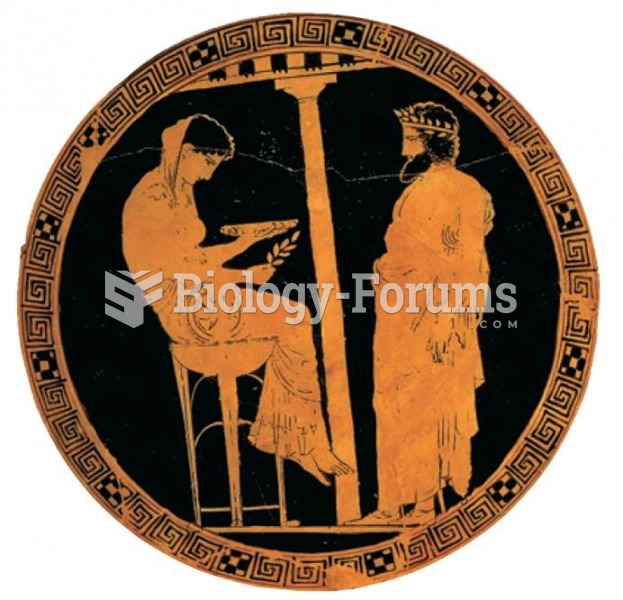|
|
|
The calories found in one piece of cherry cheesecake could light a 60-watt light bulb for 1.5 hours.
Earwax has antimicrobial properties that reduce the viability of bacteria and fungus in the human ear.
By definition, when a medication is administered intravenously, its bioavailability is 100%.
There used to be a metric calendar, as well as metric clocks. The metric calendar, or "French Republican Calendar" divided the year into 12 months, but each month was divided into three 10-day weeks. Each day had 10 decimal hours. Each hour had 100 decimal minutes. Due to lack of popularity, the metric clocks and calendars were ended in 1795, three years after they had been first marketed.
Once thought to have neurofibromatosis, Joseph Merrick (also known as "the elephant man") is now, in retrospect, thought by clinical experts to have had Proteus syndrome. This endocrine disease causes continued and abnormal growth of the bones, muscles, skin, and so on and can become completely debilitating with severe deformities occurring anywhere on the body.
 Xenophon (430–357 B.C.E.) Biographer of Socrates and his student as a youth. In addition to four ...
Xenophon (430–357 B.C.E.) Biographer of Socrates and his student as a youth. In addition to four ...
 Socrates thrived on the intellectual life of the agora (the marketplace), where he could be sure to ...
Socrates thrived on the intellectual life of the agora (the marketplace), where he could be sure to ...
 The Oracle at Delphi. According to the revered Oracle at Delphi, no man was wiser than Socrates. ...
The Oracle at Delphi. According to the revered Oracle at Delphi, no man was wiser than Socrates. ...




